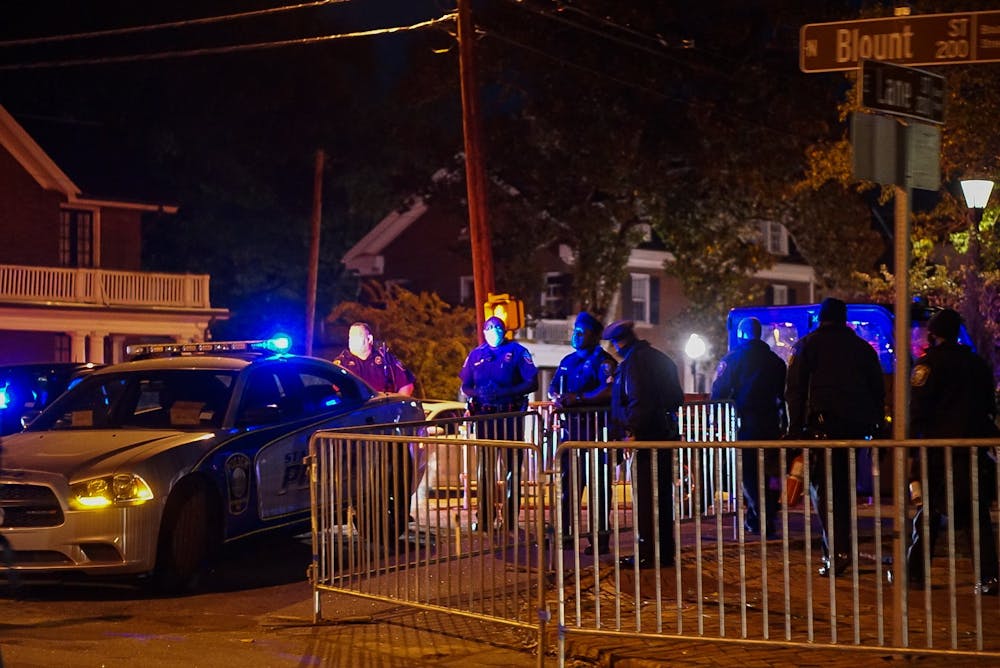After a wave of Black Lives Matter protests and calls for racial equity last summer, many municipalities in North Carolina debated lowering their police budgets. Now, a recently proposed bill in the N.C. Senate would penalize them for doing so.
N.C. Senate Bill 100, also known as the Police Funding Protection Act, was created in direct response to community efforts to defund the police. The bill states any North Carolina city that reduces funds for law enforcement agencies by more than one percent of the city's annual budget will receive an equivalent reduction in state funding.
The Police Funding Protection Act, filed on Feb. 15 by three Republican sponsors, comes at a time where some municipalities are looking to reduce or restructure their law enforcement agencies for racial equity purposes or due to pandemic-influenced budget cuts.
Local municipalities create public safety task forces
In June 2020, the Chapel Hill Town Council adopted a Resolution on Developing New Community Approaches to Improve Racial Equity and Public Safety in Chapel Hill.
Under this resolution, a Re-Imagining Community Task Force was created to bring recommendations to the town council that will increase public safety and eliminate structural inequities in the Town’s public safety systems.
Chapel Hill Mayor Pam Hemminger said she does not see the bill as an immediate threat to the work that this task force plans to do, but that the Town never likes to lose local control to the state.
“They always use this punishment approach, 'if you don't do what we say we're gonna take the other money away from you'," Hemminger said. "That's not a way to govern.”
If the bill is passed, Hemminger said Chapel Hill will find a way to work around it. She said there are other ways to combat racial inequities other than cutting back on the Town's law enforcement.



